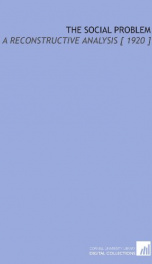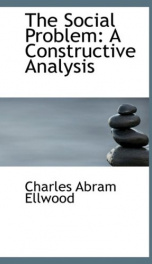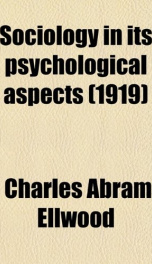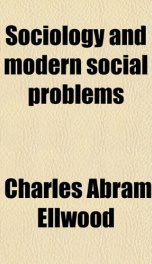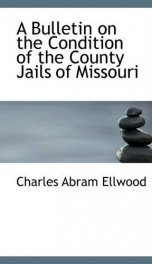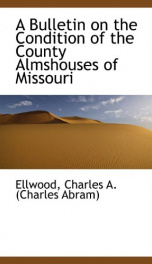an introduction to social psychology
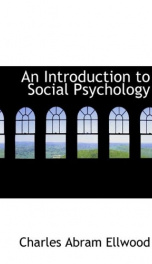
Purchase of this book includes free trial access to www.million-books.com where you can read more than a million books for free. This is an OCR edition with typos. Excerpt from book: CHAPTER III HUMAN NATURE AND HUMAN SOCIETY We cannot understand human society unless we understand human nature. By human nature we mean the nature with which the individual is endowed by birth, and not that which he acquires through the influence of his environment after birth.1 It is, in brief, the original nature of man. This is the nature, in other words, which organic evolution has given man, while his acquired characteristics are the gift largely of civilization or his social environment. Some social thinkers have argued that the original nature of man has nothing to do with his present social life, but this is as great a mistake as those have made who have confounded social evolution with organic evolution. The original nature of man is not like a piece of blank paper, on which any character may be impressed. It must be neither neglected by the social psychologist nor over-emphasized. He must, if possible, get a just view of its relation to existing social facts. Wrong Views Of Human Nature. Social thinkers have, in general, tended to have either too pessimistic or 1 Professor Cooley, in his writings, uses the term " human nature " to mean "the nature which is developed and expressed in those simple, face-to-face groups that are somewhat alike in all societies, the family, the playground and the neighborhood " (" Social Organization," p. 30). It is the nature acquired in the simple, universal forms of human association, according to Cooley. This is not in accordance with the best psychological usage, but to avoid ambiguity we shall employ, whenever possible, such expressions as, "the original nature of man," "the original tendencies of human nature," and the like. too optimistic a view of human nature. Very few of them have struck the just balance between the e... --This text refers to an alternate Paperback edition.
Info about the book
Author:
Series:
Unknown
ISBN:
0131920189
Rating:
3.5/5 (3)Your rating:
0/5
Languge:
English
Users who have this book
Users who want this book
What readers are saying
What do you think? Write your own comment on this book!
write a commentif you like an introduction to social psychology try:
Do you want to exchange books? It’s EASY!
Get registered and find other users who want to give their favourite books to good hands!
